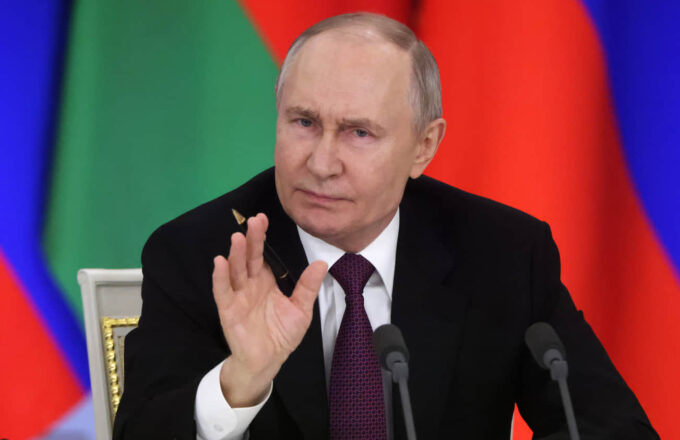The Kremlin has officially confirmed that Russian President Vladimir Putin will not be attending the scheduled negotiations with the Ukrainian delegation in Istanbul

This announcement has caused significant resonance in political circles — especially considering previous statements and expectations surrounding a potential meeting that emerged in the lead-up to it. Kremlin spokesperson Dmitry Peskov, in a conversation with the Russian news agency "RIA Novosti," clearly stated that there are currently no grounds to speak of Vladimir Putin's participation in future negotiations. When asked by journalists about the likelihood of his involvement in the planned talks in Turkey, he answered briefly and unequivocally: "There is no such possibility." At the same time, this response carries not only information but also a signal — an official confirmation from the Kremlin that the head of the aggressor country does not plan to take part in these diplomatic events personally. Even earlier, on the night of May 11, the Russian president made an unexpected statement that emphasizes Moscow's possible interest in diplomatic resolution of the conflict. According to him, Moscow is supposedly inclined toward "direct negotiations" with Kyiv in Istanbul on May 15. It is important to note that this statement was based on official information disseminated by Turkish President Recep Tayyip Erdoğan. He confirmed to Zelensky that Turkey is ready to serve as a platform for direct talks between Ukraine and Russia. He also mentioned that if the Ukrainian leader and the Russian president agree, the meetings could take place in Turkey — either in Ankara or, according to other sources, in Istanbul. Vladimir Zelensky, during a recent interview, announced that the scheduled meeting with the Turkish leader on May 15 would take place in Ankara. However, he added that if Russian representatives — including Putin — agree to meet in Istanbul, the Ukrainian delegation is willing to change the venue and go there instead. Meanwhile, the head of the Office of the President of Ukraine, Andriy Yermak, emphasized that Kyiv is open to any format of negotiations but only under the condition of a complete ceasefire — directly and without any additional conditions. A significant point: at the end of May 14, Putin approved the composition of the Russian delegation that will participate in the negotiations in Turkey. However, the list does not include the Russian president himself. Instead, other representatives, not specified by Russian sources, have been included. Ukrainian officials have stated that Kyiv is fully prepared to meet with the Russian team to discuss, among other issues, the implementation and monitoring of the unconditional 30-day ceasefire regime proposed by the administration of U.S. President Donald Trump. Overall, the situation surrounding the possibility of negotiations is becoming increasingly tense and uncertain. The absence of Putin’s direct participation and the official confirmation of his absence eliminate any hopes for a quick resolution of the conflict through direct diplomatic talks. While Ukraine continues to emphasize the importance of security arrangements and an end to hostilities before any negotiations, the Kremlin maintains a diplomatic coldness and indicates preparations for a prolonged process. The coming days will show how realistic the plans for diplomatic settlement remain and whether new drafts of agreements will emerge in this complex and multi-faceted diplomatic game over the Ukraine-Russia conflict.

